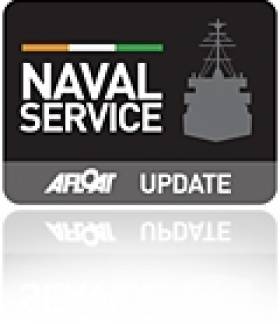Displaying items by tag: Taoiseach Public Service Excellence Awards
#NAVAL SERVICE – The Irish Maritime and Energy Resource Cluster (IMERC), based in Haulbowline, Co. Cork, has won an award at the Taoiseach's Public Service Excellence Awards.
Minister for Justice Equality and Defence, Alan Shatter TD, was delighted to congratulate the Irish Naval Service for the award won by IMERC. The Naval Service was one of four areas within his departments to win an award at a ceremony held yesterday in Dublin Castle.
The Minister said "IMERC is a unique example of joined-up-thinking across three public sector institutions, the Irish Naval Service as an element of the Defence Forces under the Department of Defence, University College Cork and the Cork Institute of Technology.
He added, "This collaboration has produced results that have leveraged major capital investment, succeeded in attracting inward investment, supported indigenous industry and enhanced capacity for research and innovation in Ireland's maritime sector."
The cluster concept is the first such project to have been selected for the Taoiseach's National Awards and in which was among 20 selected for its 'innovation' and potential 'excellence' of the 190 applications.
The developing IMERC campus is to feature the world's largest energy renewable centre. The cluster aims to create up to 52,000 jobs in the wave energy technologies sector by 2020.





























































